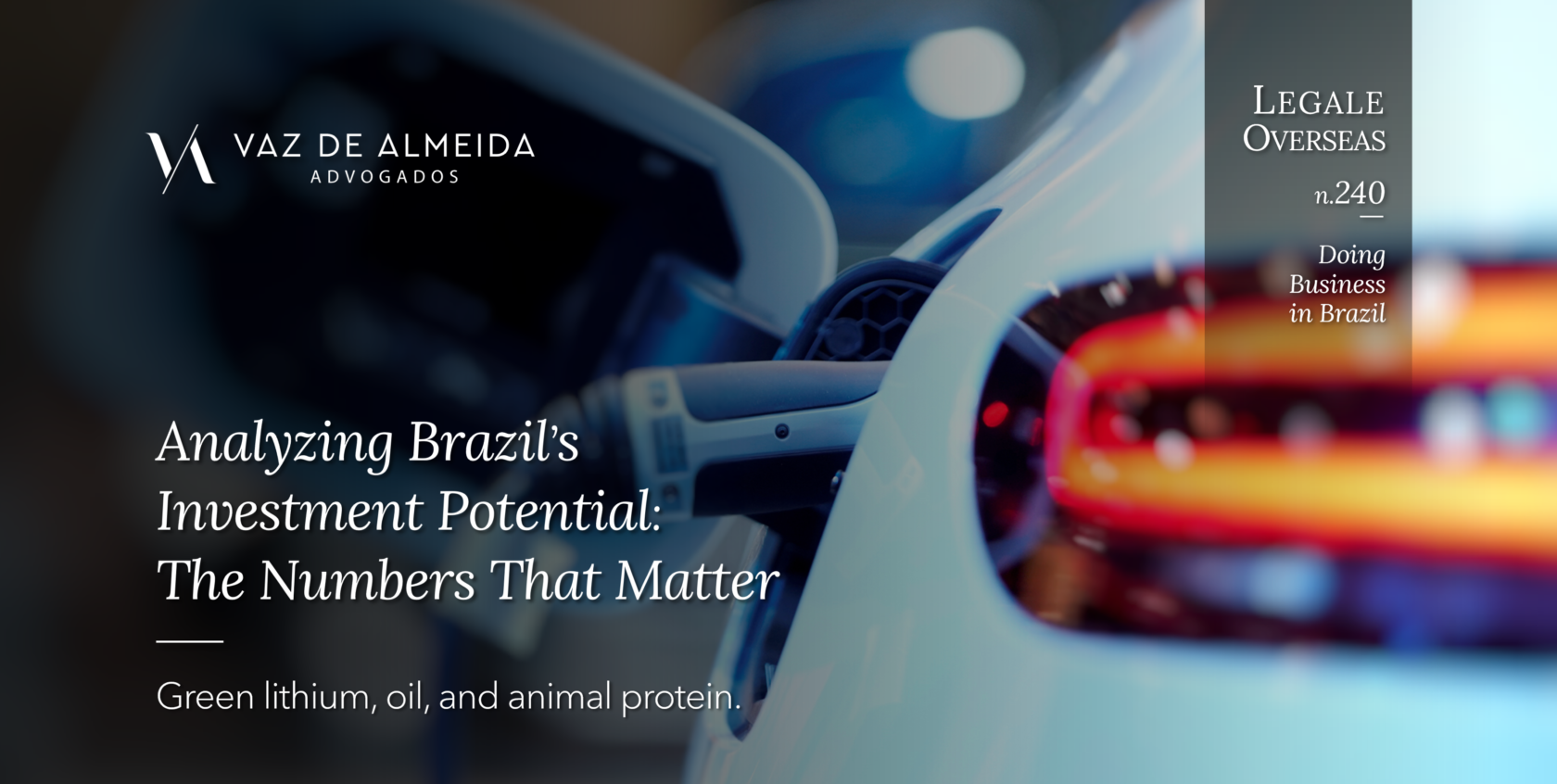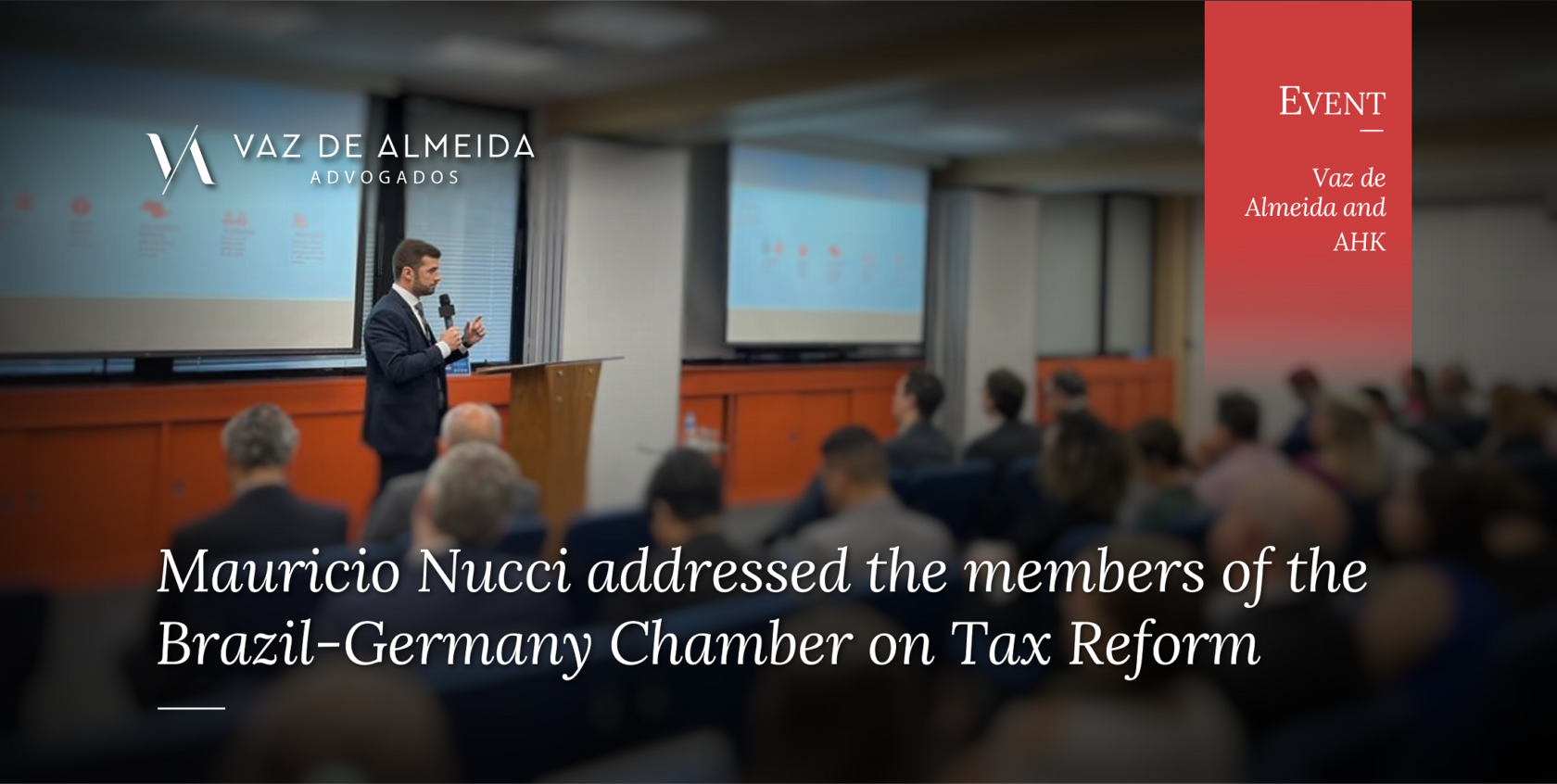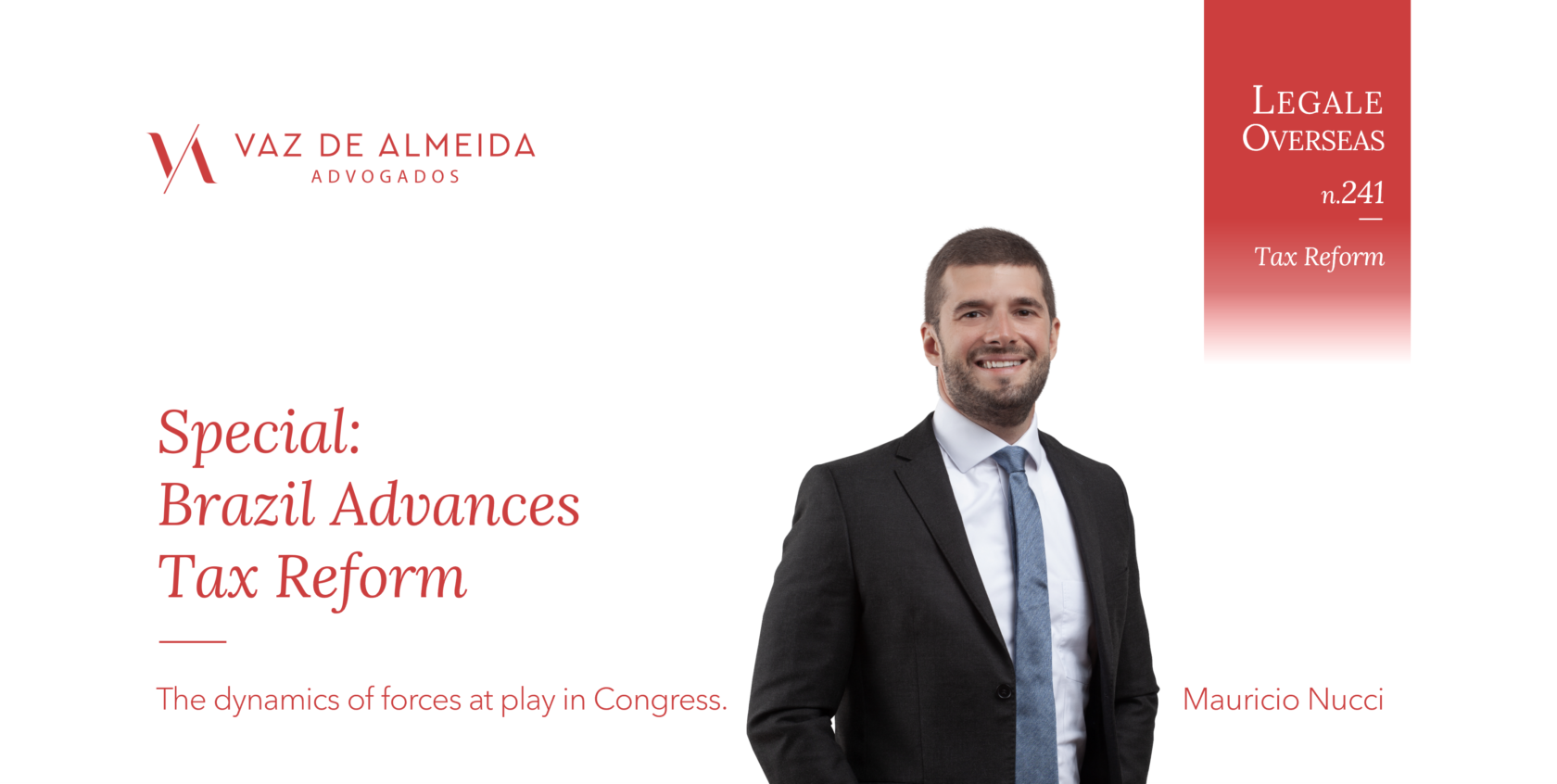Special Tax Reform Feature ― Stay informed about the legislative process in the Federal Senate: comprehensive overview and scenarios; the dynamics of forces at play in Congress; progress and key documents in the process.
By Mauricio Nucci, with
Communication Department.
―
Legale Overseas, No. 241.
Updated on August 23th, at 20:45 PM.
The autographed version of the Proposed Constitutional Amendment No. 45 (or PEC 45), originally approved by the Chamber of Deputies in early July, has been in the Senate since August 3rd, 2023.
PEC 45 is accompanied by two other combined proposed amendments that collectively constitute the referred Tax Reform and are advancing together since August 8th, as directed by the House Presidency. These proposals are PECs Nos. 110 of 2019 and 46 of 2022.
Between August 8th and the most recent update of this panel on the 23th, a total of 76 amendments to PEC 45 have been submitted to the Committee on Constitution, Justice, and Citizenship (CCJ), chaired by Senator Davi Alcolumbre (UNIÃO, political party). In addition, there’s a request for the Tax Reform to be the focal point of a series of debates within the Committee on Economic Affairs (CAE) of the House.
Certainly, the number of amendments and requests is expected to continue growing. However, many forces are working to ensure that the legislative process in the Senate doesn’t take longer than in the Chamber of Deputies. In this regard, as announced by the President of the Senate, Rodrigo Pacheco (PSD, political party), who believes the subject should proceed «with a sense of urgency,» the Committee on Economic Affairs (CAE) will provide informative support by organizing a series of public hearings to delve into the discussions. However, the CAE will not play a voting role throughout the proceedings. This implies that, after its passage through the CCJ, the text ― overseen by Senator Eduardo Braga (MDB, political party) as rapporteur ― will proceed directly to the Plenary for consideration.
From that point onward, considering that the text of PEC 45 is unlikely to remain unchanged, the proposal will need to be resubmitted to the Chamber of Deputies. As of now, according to Senator Rodrigo Pacheco’s estimates, the Senate’s deliberations are expected to span 2 to 3 months.
General Overview
In addition to the rapporteur, Eduardo Braga, other influential Senators have indicated certain points that might be subject to modification, despite the 76 amendments filed thus far.
Discussed as a possibility since the promulgation of the Federal Constitution in 1988, the reform of the Brazilian tax system has never undergone a systematic revision.
To be clear: the proposal’s immediate objective is not to reduce the tax burden, but rather to eliminate the practice of cascading taxation, which results in the cumulative collection of taxes upon other taxes. This approach adversely affects consumption and significantly impacts the competitiveness of the Brazilian economy.
At the core of PEC 45 is the simplification of the tax system through the elimination of three federal taxes (Excise Tax on Industrialized Products, Program for Social Integration, and Contribution for Social Security Financing), the state-level Tax on Circulation of Goods and Services and on Interstate and Intermunicipal Transportation and Communication (ICMS), and municipal Tax on Services (ISS). These would essentially be replaced by two new taxes: the Contribution on Goods and Services (CBS), managed by the Federal Government, and the Goods and Services Tax (IBS), shared between States and Municipalities. Additionally, a Selective Tax (IS) is set to be introduced, levied on items harmful to health and the environment, similar to the American «Sin Tax.»
Regarding the documentation related to the legislative process, up to the present moment, the relevant items include, in addition to the basic texts of the proceedings (PECs 45 and 110), the technical and informative notes authored by the Ministry of Finance, along with their statements in support of the proposals.
Created by the economic ministry’s communication advisory, and supported by a technical note, the informative examines the impact of the Tax Reform on goods and services consumption taxation. It proposes a method for simulating tax burdens in a hypothetical scenario of complete approval as voted in the Chamber of Deputies. According to the Finance Ministry’s method, succinctly, the prospective Value-Added Tax (VAT) standard rate may range from 25.45% to 27%. This range would place Brazil alongside Hungary in the rather uncomfortable position of leading the list of countries with the highest VAT on the consumption of goods and services, according to the Organization for Economic Co-operation and Development (OECD).
―
In Portuguese:
Full text of the approved PEC 45 by the Chamber
Full text of PEC 110 from the Senate
Informative Note from the Ministry of Finance
Technical Note from the Ministry of Finance
―
Scenarios and Directions
As per journalists Marcelo Ribeiro, Beatriz Olivon, Lu Aiko Otta, and Jessica Sant’Ana, reporting from Brasília for the Valor Econômico newspaper, the package of PECs (45, 46, and 110) contains over 40 points that necessitate regulation through Complementary Laws. These are likely to be divided into at least four distinct propositions. Simplifying the final text, which will amend the Constitution, and reserving detailed discussions for the Complementary Laws may expedite the Senate’s passage of the matter and its return to the Chamber of Deputies.
One of these Complementary Law proposals is expected to regulate topics such as the IBS and CBS, their respective immunities, and the «cashback» mechanisms. According to sources consulted by the journalists in Brasília, the standard IBS rate could be calculated by the Federal Audit Court (TCU) and established through a Senate Resolution. The Federative Council, a topic that faces resistance among some Governors and Senate members, should be detailed by a dedicated Complementary Law. This proposal is likely to establish the Council and its functioning, in addition to addressing the integration of State and Municipal Tax Administrations, along with outlining how the IBS funds will be allocated to the Federative units. A third Complementary Law should address the topic of the Selective Tax, while a fourth Complementary Law will focus on ICMS credit refund during the transition between systems. According to the journalists’ findings, there is an expectation that the Complementary Laws will be crafted during the Reform’s process, while it is in progress in the Senate and, subsequently, in the Chamber of Deputies
On the Chessboard of the Game
In the alignment of regional interests, Eduardo Braga, the rapporteur of the Tax Reform in the Senate and representative of the Amazonas state, advocated for maintaining the fiscal privileges of the Free Economic Zone of Manaus (ZFM). However, he expressed opposition to the possibility of states creating a new tax for «primary» and «semi-processed» products, as advocated by the Governors of the Midwest.
The proposal for a Federative Council to manage the IBS was criticized by Senators Rogerio Marinho (PL, political party) and Hamilton Mourão (Republicans, political party), for example. According to the Senator from Rio Grande do Sul, the Council could potentially disrupt the federal pact.
On the other hand, the Government Leader in the Senate, Jaques Wagner (PT, political party), stated that he will work towards achieving the longest possible extension of the fiscal benefits linked to the Industrialized Products Tax (IPI, which will be abolished) that have been granted to the automotive sector plants located in the Northeast.
Tax Burden
So far, the main criticisms among some Senators are directed towards the last-minute changes made by Federal Deputies to the provisions of PEC 45, during the voting that took place between the night and early morning of July 6 and 7.
Contrary to the exceptional benefits granted in the Chamber of Deputies, there is an anticipation of reducing the number of Economic Sectors that will benefit from exemptions and lower tax rates, as proposed, and approved by the Deputies. After all, the greater the number of exemptions, the higher the necessary tax rates to offset the revenue losses from the benefiting Economic Sectors.
In this regard, the study from the Ministry of Finance submitted to the Senate indicates that if only the originally planned exceptions from the proposal approved by the Chamber were confirmed by the Senate, such as the Simplified National Taxation System (Simples Nacional) and the Free Economic Zone of Manaus, disregarding the exceptions added by Deputies in the last hours preceding their vote, the standard rate of the future Value-Added Tax (VAT) could vary from 20.7% to 22%, taking into account estimations of tax evasion and tax avoidance losses.
―
Keywords
Brazilian Tax Reform
Tax Reform
Proposed Constitutional Amendment No. 45
PEC 45
PEC 110
PEC 46
Senator Davi Alcolumbre
Senator Eduardo Braga
Senator Hamilton Mourão
Senator Jaques Wagner
Senator Rodrigo Pacheco
Senator Rogerio Marinho
Brazilian Federal Constitution
Excise Tax on Industrialized Products (IPI)
Program for Social Integration (PIS)
Contribution for Social Security Financing (COFINS)
Tax on Circulation of Goods and Services and on Interstate and Intermunicipal Transportation and Communication (ICMS)
Municipal Tax on Services (ISS)
Simplified National Taxation System (Simples Nacional)
Brazilian Dual Value-Added Tax (VAT)
Contribution on Goods and Services (CBS)
Goods and Services Tax (IBS)
Selective Tax (IS)
Free Economic Zone of Manaus (ZFM)
Competitiveness of the Brazilian economy
Brazilian Federal Government
Brazilian Ministry of Finance
Brazilian Chamber of Deputies
Brazilian Federal Senate
―
Meet our Editor >
―
People and Community >
Meet our Leaders >
Awards, Nominations and Recognitions >
INSIGHTS, our News Portal >
―
Tax >
Corporate Law >
Conflict Prevention and Resolution >
Relations of the Automotive Industry >
Labour Relations, Global Mobility and People Management >
Intellectual Property >
Innovation, Digital Law and Cybersecurity >
ESG / Environmental Law and Sustainability >
Infrastructure, Real Estate Law and Construction >
Administrative Law, Public Law and Government Relations >
―
Focussing on what really matters ― We are an independent law firm, dedicated to providing legal support for the international operations and investments of foreign companies in Brazil and the internationalization of Brazilian companies, from preparation to support in the destination countries. Our Purpose is to identify and catalyze the best business opportunities, clearing the barriers that compromise our Clients’ time and energy, so that they can focus on the work that really matters: exceeding the expectations of their shareholders. We are not just lawyers. We are business consultants and strategists. Our ambition is to make the world a better place through our work and contribute to the improvement of the Brazilian business environment, positively influencing the leaders we deal with, as well as balancing, in a consistent and sustainable way, the creation of value for our clients with the creation of value for our professionals and the community.
―
Non-negotiable boundaries ― Either one has integrity, or one has nothing. Our company prides itself of the care it gives to every ethical aspect of human relations and of everyday work, ensuring that our team never crosses the line of no return. That is why we hold the highest standard of internal demand, guaranteeing that every deal is made only for the advantages of its terms. We do not restrain ourselves to the strict observance of Brazilian Law and the Law of the countries of origin of the corporations and investors we deal with, alone. In addition, we follow all the indications of the «United Nations Convention against Corruption» as well as the «Convention on Combating Bribery of Foreign Officials in International Business Transactions» of the Organization for Economic Cooperation and Development (OECD). We also follow the guidelines about «Good Practice Guidance on Internal Controls, Ethics and Compliance» (2009), as well as the «Guidelines for Multinational Enterprises » (2011), both issued by the OECD. We believe, that doing the right thing is good for business, and that honest work strengthens the belief, that despair over the ways of the world shall not prevail.
―
+55 19 3252-4324
Barão de Itapura, 2323
8° floor, Guanabara
Campinas SP
Brazil
News Portal
Communication Department



